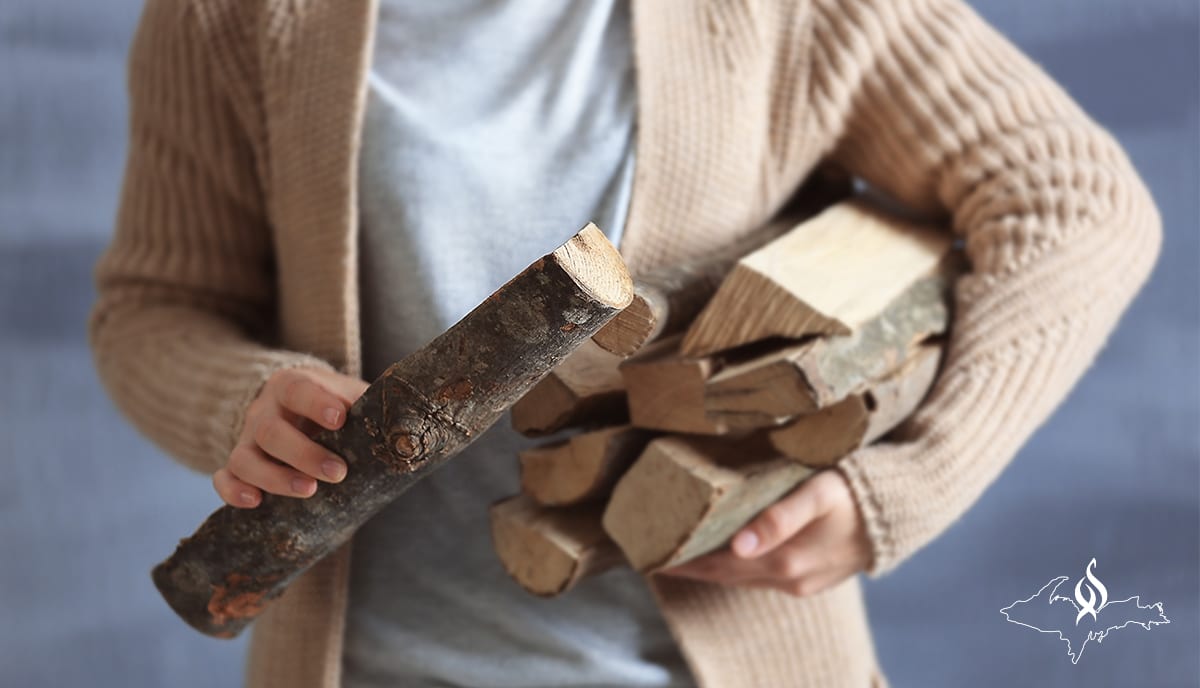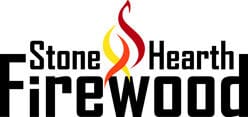One question that we often get asked is what makes better firewood, softwood or hardwood? In a nutshell, hardwood makes better firewood because it burns longer, hotter, and produces less smoke. But both hardwood and softwood can be great choices. It just depends on how you plan to use it. Will it be used for primary or supplemental heating source in your home or the occasional campfire? To help you decide which type is better for your needs, let’s take a closer look at these two.

What is Hardwood?
The simplest way to identify a hardwood tree is by its leaves. They are known to have broad flat leaves and will shed their leaves each fall. There are many different species of hardwood trees, but the most common types are Birch, Cherry, Maple, Oak and Walnut.
What is Softwood?
By contrast, softwoods such as conifers or evergreen trees are recognized by their sharp needles and the cones that they produce. They typically shed their needles once every 2 to 4 years. Cedar, Pine, Fir, Spruce and Juniper are all well-known types of softwood.
Hardwood vs. Softwood
If you’re using firewood for indoor use such as wood stoves, saunas or a fireplace, then hardwood is the better firewood. It has lower moisture content than softwood. It burns slower and cleaner because of how dense the wood is. And, if you are going to be burning it a lot, it’s more economical because you’ll use less of it.
In regards to price, you’ll spend more on hardwood up front compared to softwood. This is for two reasons. The first is that it takes a hardwood tree longer to mature than a softwood tree. For example, a sugar maple sapling takes 30 years to grow, while a pine sapling only takes eight years to reach maturity.
The second reason is that pound for pound, you get the same amount of heat, but for the volume, you will use roughly twice as much softwood than hardwood. This is because softwood is less dense; therefore, it burns faster.
One drawback to burning hardwood is that even though there are lower levels of moisture, it takes about twice as long (1-2 years) for it to be adequately dried. For this reason, many people turn to kiln-dried wood. You get the many benefits that come with burning hardwood, but you don’t have to spend the time and effort cutting, stacking, and waiting before you can use it.
Softwoods season much faster than hardwood, making them an excellent choice for kindling. Cedar is one of the best sources of kindling. Not only is it quick to light but it smells terrific.
Besides kindling, softwoods are great for campfires because they are very resinous – which allows the wood to catch fire quickly, burn faster and produce those splendidly large flames that crackle and spark. When you need to revive a slow-burning fire, use a blend of softwoods and hardwoods.
In summary, hardwood is more economical and efficient to use as firewood, but you could keep some softwood on hand to use for kindling or campfires.
Running low on firewood? Call 906-250-6178 or click here to order yours today.
